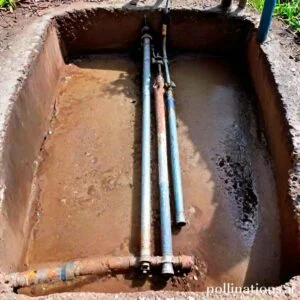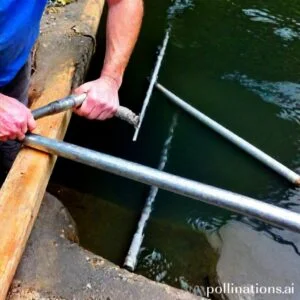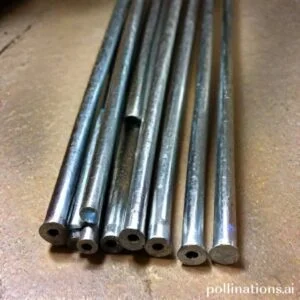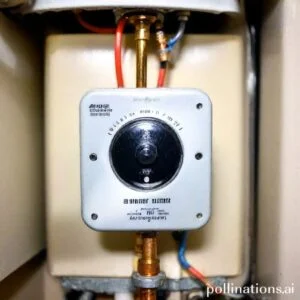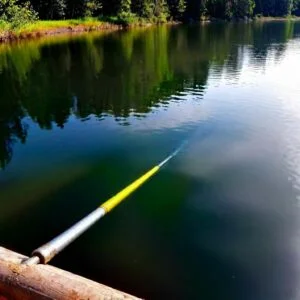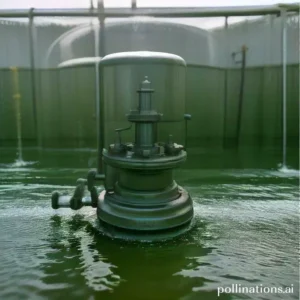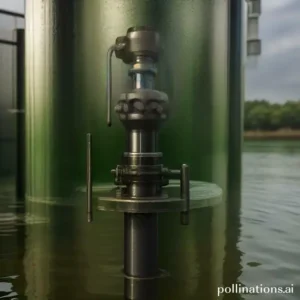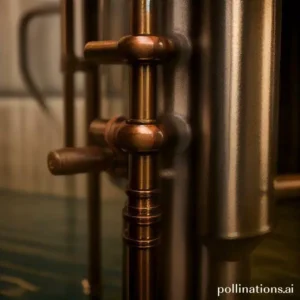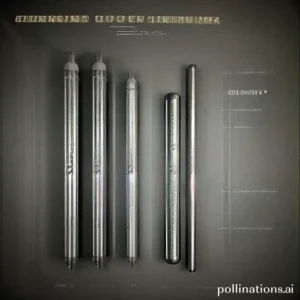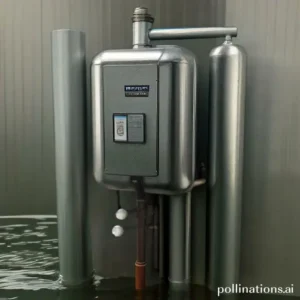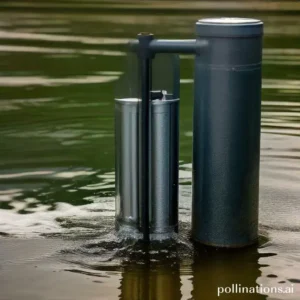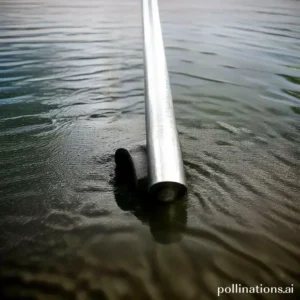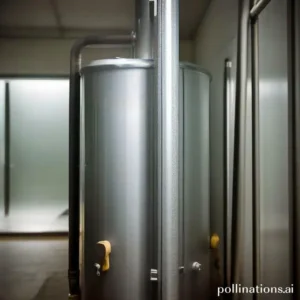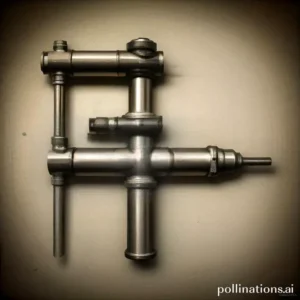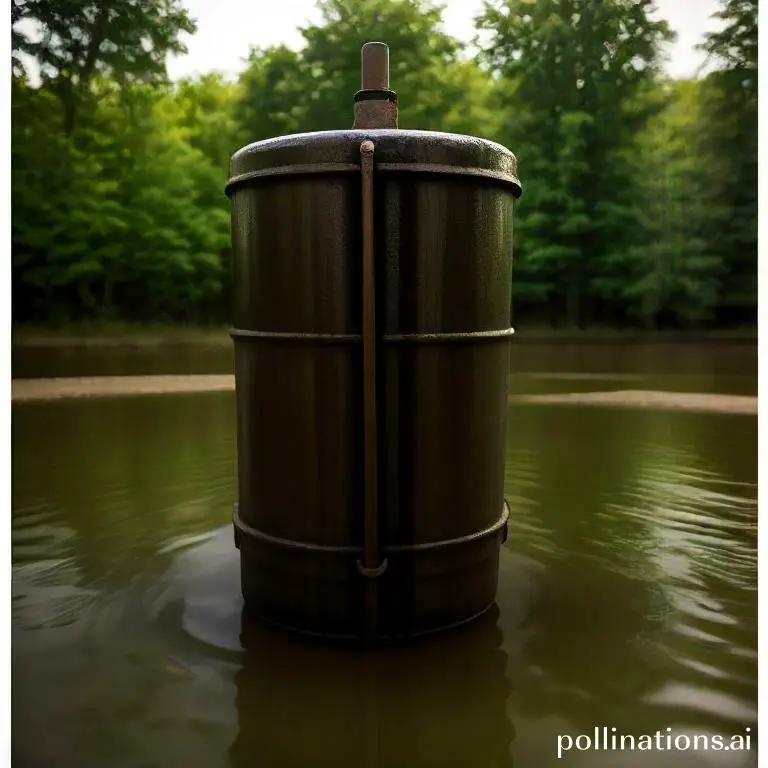
II. Signs that your anode rod needs immediate attention include foul-smelling water, rust-colored water, and unusual noises from the tank.
III. Neglecting anode rod maintenance can lead to leaks, appliance failure, and costly repairs, so it’s important to address any issues promptly.
Is your water heater not performing as efficiently as it used to? Are you experiencing rusty or discolored water?
These could be signs that your anode rod needs immediate attention. The anode rod is a crucial component of your water heater, protecting it from corrosion and extending its lifespan.
If it becomes worn out or corroded itself, it can no longer effectively do its job. Don’t wait until it’s too late.
Addressing the issue promptly can save you from costly repairs or even having to replace your entire water heater. Stay proactive and ensure the longevity of your water heating system.
What is an Anode Rod?
An anode rod is a crucial component in water heaters that helps prevent corrosion and extends the lifespan of the tank. It is made of a metal alloy, typically magnesium, aluminum, or a combination of both. The anode rod is inserted into the water heater tank and works by attracting corrosive elements in the water, sacrificing itself to protect the tank from rust and corrosion.
Types of Anode Rods Available in the Market
There are different types of anode rods available, each with its own advantages and suitability for specific water conditions:
| Type | Material | Suitable Water Conditions |
|---|---|---|
| Magnesium Anode Rods | Magnesium | Soft water with low mineral content |
| Aluminum Anode Rods | Aluminum | Hard water with high mineral content |
| Combination Anode Rods | Magnesium and Aluminum | Varying water conditions |
Importance of Anode Rod in Preventing Corrosion in Water Heaters
The anode rod plays a crucial role in preventing corrosion within the water heater tank. As water naturally contains minerals and impurities, these can cause the tank to corrode over time. The anode rod attracts and reacts with these corrosive elements, creating a protective layer on its surface and sacrificing itself instead of the tank. Regular inspection and replacement of the anode rod is essential to ensure its effectiveness in preventing corrosion.
For example, in areas with soft water, magnesium anode rods are recommended as they are highly effective in attracting corrosive elements. Nonetheless, aluminum anode rods are suitable for areas with hard water, as they provide superior protection against mineral buildup. Combination anode rods are versatile options that can be used in various water conditions.
Signs that your Anode Rod Needs Replacement
The anode rod in your water heater is responsible for protecting the tank from corrosion. Over time, this rod can become worn out and may need to be replaced. Here are some signs that indicate your anode rod is due for replacement:
Foul smelling water
If you notice a strong, unpleasant odor coming from your hot water, it could be a sign that your anode rod needs to be replaced. As the rod deteriorates, it can release sulfur compounds into the water, creating a foul smell.
Rusty water
Another indication that your anode rod is failing is if you notice rusty water coming from your taps. This rust coloration is a result of the iron in the tank reacting with the water due to insufficient protection from the anode rod.
Noisy water heater
A noisy water heater can be a sign of various issues, including a deteriorating anode rod. If you hear popping or cracking sounds coming from your heater, it’s a good idea to have the anode rod checked for wear and tear.
Corrosion on the water heater tank
Inspect your water heater tank regularly for any signs of corrosion. If you notice any areas of rust or deterioration on the tank’s surface, it may indicate that the anode rod is no longer effectively protecting the tank.
Decreased hot water supply
If you find that your hot water supply is not as ample as it used to be, it could be a result of a failing anode rod. As the rod deteriorates, the tank becomes more susceptible to corrosion, which can lead to a decrease in hot water production.
It’s important to address these signs promptly to prevent further damage to your water heater. Consult a professional plumber to assess the condition of your anode rod and determine if replacement is necessary. Regular maintenance and timely replacement of the anode rod will help extend the lifespan of your water heater and ensure consistent hot water supply.
How to Replace an Anode Rod
Replacing an anode rod in your water heater is an important maintenance task that can help prolong the lifespan of your appliance. By heeding a few simple steps and taking necessary safety precautions, you can easily replace the anode rod and ensure the continued efficiency of your water heater.
Tools Required for Replacing Anode Rod
Before you begin the replacement process, gather the following tools:
- Adjustable wrench: This will be used to loosen and tighten the anode rod.
- Teflon tape: This will help create a watertight seal when installing the new anode rod.
- Bucket: You’ll need a bucket to catch any water that may spill during the process.
- Rags: Keep some rags handy to clean up any spills or drips.
Step-by-Step Guide on How to Replace Anode Rod
Follow these steps to replace the anode rod:
- Turn off the power: Before you begin, make sure to turn off the power supply to the water heater. This will prevent any accidents or electric shocks.
- Drain the tank: Attach a hose to the drain valve of the water heater and empty the tank into a suitable drain or bucket.
- Locate the anode rod: The anode rod is usually located on the top of the water heater. Use the adjustable wrench to loosen and remove the old anode rod.
- Inspect the rod: Check the condition of the old anode rod. If it’s heavily corroded or worn out, it’s definitely time for a replacement.
- Apply Teflon tape: Wrap Teflon tape around the threads of the new anode rod to ensure a secure fit.
- Install the new rod: Carefully insert the new anode rod into the water heater and tighten it with the adjustable wrench. Make sure it’s securely in place.
- Refill the tank: Close the drain valve and turn on the water supply to refill the tank. Check for any leaks around the anode rod.
- Turn on the power: Once the tank is filled, turn on the power supply to the water heater. You’re now ready to enjoy hot water without any worries!
Safety Precautions to Take When Replacing Anode Rod
When replacing the anode rod, keep the following safety precautions in mind:
- Turn off the power: Always turn off the power supply to the water heater before starting any work.
- Use caution with hot water: The water in the tank can be scalding hot, so be careful when draining or refilling the tank.
- Wear protective gear: It’s a good idea to wear gloves and safety goggles to protect yourself from any potential hazards.
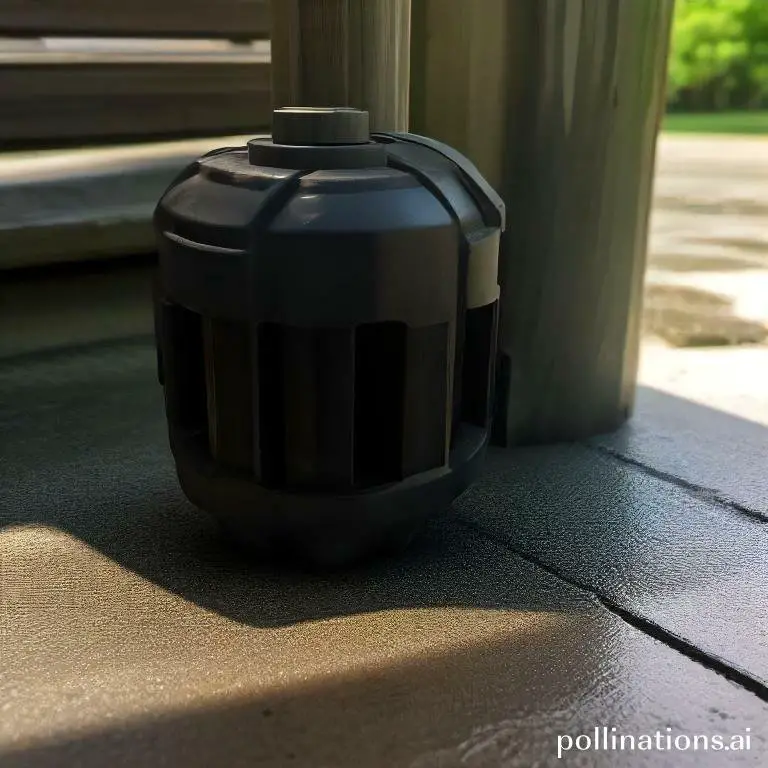
How Often Should Anode Rods be Replaced?
Anode rods are an essential component of any water heater system, as they play a crucial role in preventing corrosion and extending the lifespan of the tank. Regular maintenance and replacement of anode rods are necessary to ensure optimal performance and avoid costly repairs. In this section, we will navigate the factors that determine how often anode rods should be replaced, recommended replacement intervals, and the importance of regular maintenance.
Factors that Determine How Often Anode Rods Should be Replaced
Several factors influence the lifespan of anode rods, including water quality, usage, and the material of the rod itself. Hard water, which contains high levels of minerals, can accelerate corrosion and reduce the lifespan of anode rods. Similarly, heavy usage or exposure to higher temperatures can also contribute to faster deterioration. Additionally, the quality and composition of the anode rod, such as aluminum, magnesium, or a combination, can affect its longevity.
Recommended Replacement Intervals for Anode Rods
During the lifespan of anode rods can vary based on the factors mentioned above, it is generally recommended to replace them every 3-5 years. That being said, in areas with particularly hard water or high usage, more frequent replacement may be necessary. It is advisable to consult the manufacturer’s guidelines and consider water quality testing to determine the ideal replacement interval for your specific situation.
Importance of Regular Maintenance of Anode Rods
Regular maintenance of anode rods is crucial to ensure their effectiveness in preventing corrosion and prolonging the lifespan of your water heater. Neglecting maintenance can lead to a compromised anode rod, which may result in accelerated tank corrosion, reduced energy efficiency, and costly repairs or replacement of the entire water heater system.
| Topic | Recommended Replacement Interval |
|---|---|
| Standard Water Quality and Usage | 3-5 years |
| High Water Hardness or Usage | 2-3 years |
| Low Water Hardness or Usage | 4-6 years |

Benefits of Replacing Anode Rods
Touching on maintaining the optimal performance of your water heater, one crucial aspect to consider is the regular replacement of anode rods. These small yet mighty components play a significant role in ensuring the longevity and efficiency of your water heater. Let’s scrutinize the benefits of replacing anode rods:
Improved Water Quality
Anode rods are designed to attract corrosive elements in your water, such as minerals and sediments. Over time, these elements can accumulate and affect the quality of your water, leading to unpleasant tastes and odors. By replacing anode rods, you can ensure that your water remains clean, fresh, and free from any unwanted contaminants.
Increased Lifespan of Water Heater
Anode rods act as sacrificial components, meaning they sacrifice themselves to protect the steel lining of your water heater tank from corrosion. Over time, anode rods can become depleted and lose their effectiveness. By replacing them regularly, you can prolong the lifespan of your water heater, preventing costly repairs or premature replacements.
Energy Efficiency
Anode rods that are fully functional can help maintain the energy efficiency of your water heater. When the steel lining is protected from corrosion, the heating elements can work more efficiently, requiring less energy to heat the water. This not only reduces your energy consumption but also contributes to a greener and more sustainable environment.
Cost Savings
| Benefits |
|---|
| Improved water quality |
| Increased lifespan of water heater |
| Energy efficiency |
| Cost savings |
Bottom Line
Regular maintenance of your water heater is crucial to ensure its longevity and efficiency. One of the most important components of your water heater is the anode rod, which protects the tank from corrosion. Signs that your anode rod needs immediate attention include rust-colored water, foul odor, and a decrease in hot water supply. If you notice any of these signs, it’s important to replace your anode rod as soon as possible to prevent further damage to your water heater. Regularly checking and replacing your anode rod can save you money in the long run by extending the life of your water heater and preventing costly repairs. Don’t wait until it’s too late, keep an eye on your anode rod and replace it when necessary to keep your water heater running smoothly.
Read More:
1. Importance Of Regular Anode Rod Inspections
2. Compatibility Of Aluminum Anode Rod With Hard Water
